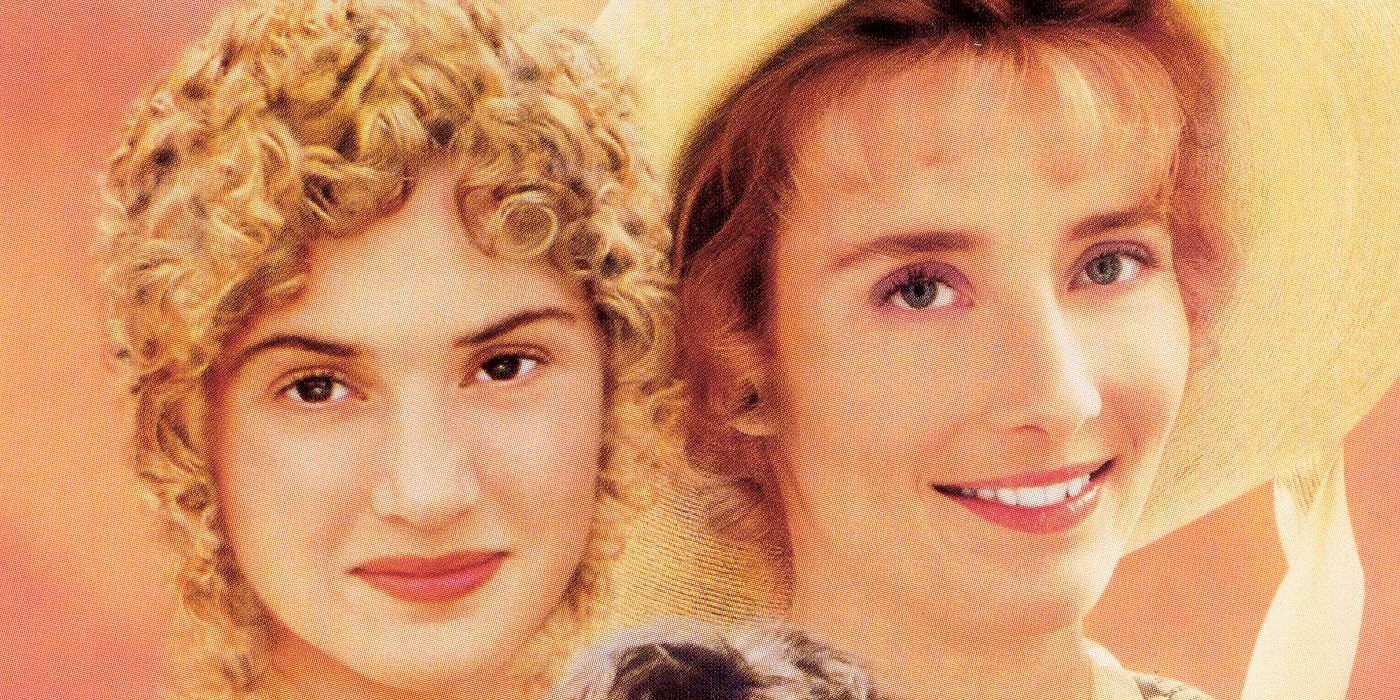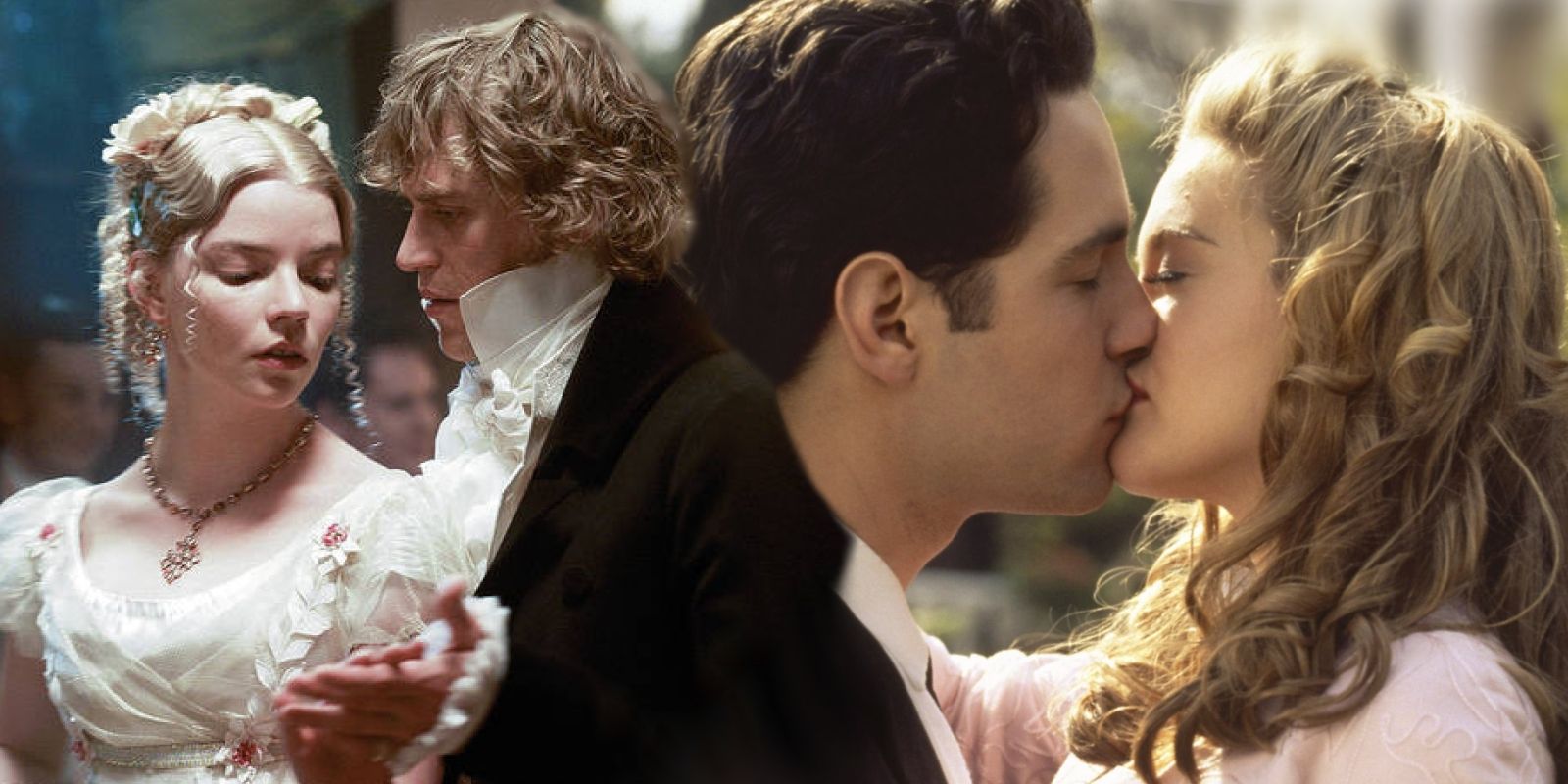Jane Austen is the queen of the historical romance, the icon of romantic comedy, the creator of all the most swooney lovelorn tales in history -- at least, that's her reputation. However, readers of Austen's six novels and various satires have often protested against her reputation as a writer only of love stories. Her novels contain a great deal more in them, from social satire to female empowerment to women's friendships, familial bonds and even nods to social ills. Romance plays a role because women's main job in society at the time was marriage, but not because Austen was obsessed with or only focused on dating. Unfortunately, most if not all the Austen film adaptations do not reflect this.
Pride and Prejudice, Austen's most famous book, has it the worst. While the novel depicts a variety of central bonds including the sisterly friendship of Elizabeth and Jane Bennet, the tragic friendship of Lizzy and Charlotte, and the Bennet sisters' relationship with their mother, these relationships are usually downplayed in adaptations in order to place the primary focus on the romances. The novel's social satire, questioning of women's roles and education, and emphasis on female bonds are given little screen-time in the 2005 film, and most viewers give them hardly a second thought.
Why Jane Austen's Sisterhood Theme Deserves More Spotlight
Austen's first novel, Sense and Sensibility, is mainly about the struggles of two sisters Elinor and Marianne Dashwood to get by once their family is systematically disinherited. They lose their own and move to a cottage where they struggle frequently with various social expectations of them as women. The sisterly bond is the main focus of the novel, as Elinor and Marianne represent extremes of sense and sensibility respectively. The best-known movie adaptation -- the 1995 film starring Kate Winslet and Emma Thompson -- is certainly a masterpiece with a script that fleshes out the two sisters' romances -- but there is less of a sense in this and most Sense and Sensibility films that the sisters are the true bond of the film.
Mansfield Park is mainly a novel about women of different classes and morality. Romance is hardly a factor for heroine Fanny Price; rather her clash with the complex anti-villain Mary Crawford and the differences between her and her spoiled cousins are the hook of the book. This is not the case in either the 1999 film or the BBC adaptation. Northanger Abbey is a novel about the dangers of over-reading novels and features a "friendship love triangle" between its heroine and her two female companions, Isabella and Eleanor. Persuasion the novel hinges on Anne Elliot's status as an ignored woman and her willingness to befriend a woman of the lower class. The recent film is a good example of eliminating the novel's female bonds but attempting to cover it up by substituting shallow "girl power" moments instead.
Emma and Clueless Are Modern Versions That Can Change This Trend
Emma the novel is the tale of the friendship between Emma Woodhouse and Harriet Smith. While matchmaking is Emma's hobby this is again the byproduct of her environment. The 2020 film did give Emma and Harriet's friendship more screen time than the 1996 film. However, it seems torn between whether the friendship or romance should be the focus, interrupting the love declaration with a reminder about Harriet and dropping (as most adaptations do) Emma's complex dynamic with Jane Fairfax. While the modern update Clueless did succeed in giving Cher a more well-rounded arc and life outside of her love with Josh, that version stands out as a modern update rather than a direct, historical adaptation.
Just because historical women didn't have access to as many options does not mean they didn't live full lives outside their marriages and love lives. Jane Austen's novels reflect her milieu, but the film adaptations tend to keep the focus squarely on the selling point, often even changing said love stories from Austen's fairly down-to-earth connections into deliberately over-the-top swoony romance of the sort she would have laughed at. While romance does have its place, Austen's books were about more than that. In an era where women are becoming stars of all sorts of genres -- from action to drama and beyond -- it's time the movies reflected that.


